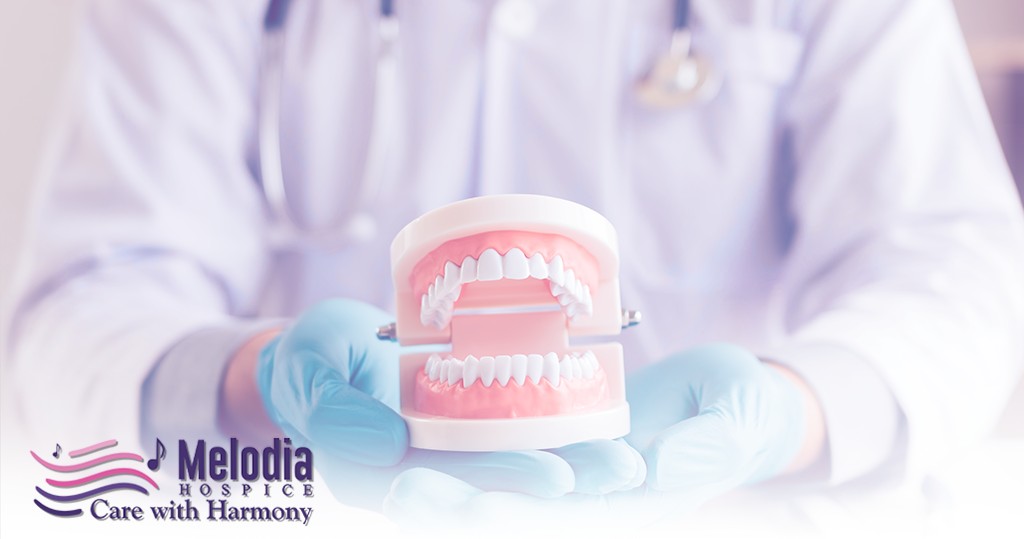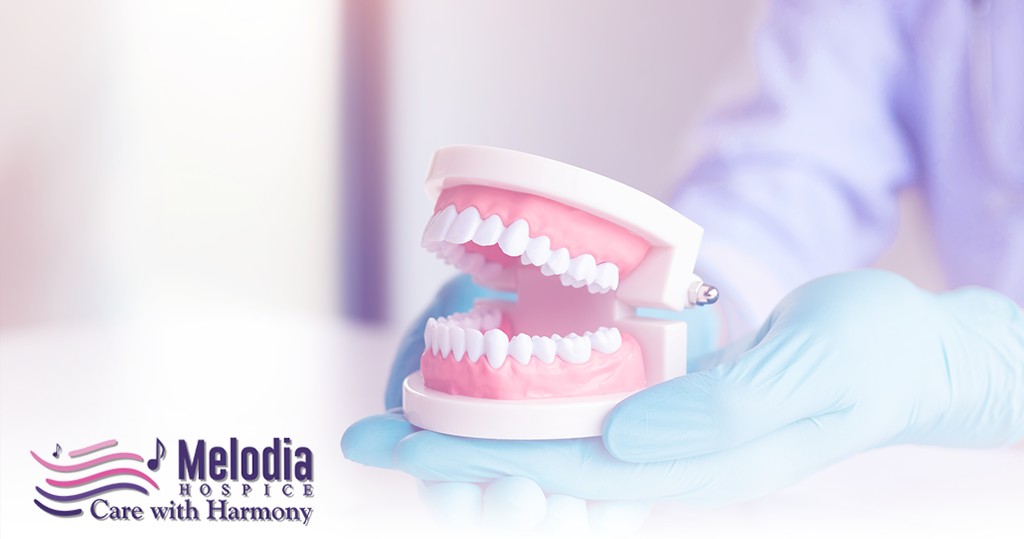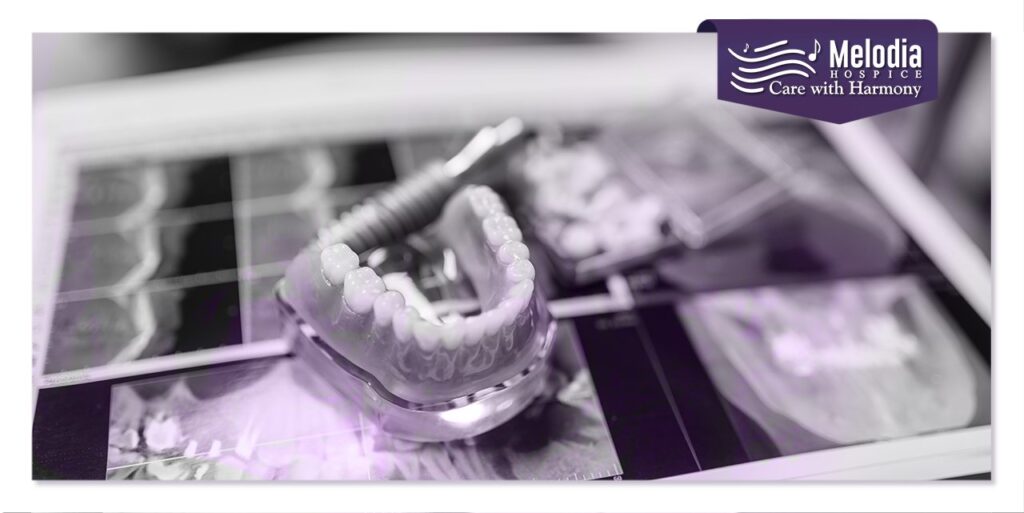Dental Care For Dementia Patients

Dental hygiene is critical to overall wellness. Heart disease, gum inflammation, stroke, osteoporosis, and respiratory illness can all be caused by poor dental care. Along with foul breath, poor oral care can impair your ability to eat, chew, and communicate. Certain medications can produce “dry mouth.” Dry mouth makes it harder to eat and swallow, produces saliva, and promotes tongue inflammation.
Brushing your teeth is a time-consuming, multi-step operation. Most of us do this effortlessly, but if you have a memory problem, you may overlook some stages. Often need care or help. Guiding someone through the processes, or modelling the actions themselves, can assist individuals involved be more effective.
Dentures must be removed, brushed, and cleaned on a daily basis. Brushing their gums and palate using a soft-haired toothbrush while they’re on the go. Dentures that do not fit well due to gingival recession can cause pain, eating disorders, and infections.
Rubbing and caressing cheeks and jaws, moaning and screaming, rolling heads, and nodding are all indicators of dental difficulties, especially when washing the face. Cramping is one of them. Other indicators of dental difficulties include restlessness, lack of sleep, increased irritation and aggression, and resistance or hesitancy to place dentures when they were previously unproblematic.
Dental Problems With Dementia Patients

Reduced saliva: Taking drugs that cause the salivary glands to produce less saliva. Saliva is necessary for maintaining a healthy mouth and preventing the development of dental decay and other oral diseases.
Consuming long-term, sugar-based products that can cause tooth decay, dry mouth, and difficulty wearing dentures.
Dietary changes: Changed eating habits, such as substituting little snacks for large meals.
Reduced dental care: Reduced ability to sustain toothbrushing and denture care over time.
When Dentures Are Needed?

Dentures may become intolerable to loved ones as dementia progresses, but they should be worn for as long as feasible to retain self-esteem and dignity, as well as to promote clear communication and good nourishment.
Consider the following dental treatment ideas for Alzheimer’s disease if your loved one wears dentures.
Rinse your dentures after each meal and try rubbing them with a denture brush.
Dentures should be removed before going to bed and soaked overnight. Denture cleaning pills or a thorough manual cleaning should be used at least once each day.
Dentures can be professionally cleaned to remove stains and bacteria.
It’s always a good idea to mark a dementia patient’s dentures for identification, especially if respite care is used.
If dentures are lost or misplaced, getting replacements can be challenging since the patient may be unwilling to comply with the dentist during the process.
If they are not worn for an extended period of time, the patient may forget how to put them on or even refuse the new set.
According to the Alzheimer’s Society, new dentures should be permanently marked during production, while existing dentures can be temporarily marked using a simple process that lasts 6 to 12 months.
Their dentures may not fit properly over time, according to the American Dental Association. As a result, it is recommended that you do have their dentist examine your loved ones on a regular basis to ensure that their denture fits properly. Incompatible prostheses are not only uncomfortable, but they can also interfere with the diet, affecting overall nutrition.
Dementia patients may be unable to express pain or discomfort in their mouth. Here are some indicators of dental disorders, according to the Alzheimer’s Association:
- Refuses to eat meals that are very hot, cold, or hard
- Pull the face and mouth apart.
- Refuse to use previously permitted dentures
- Restlessness, groaning, and sleep disturbances
- Cramps during washing or shaving the patient’s face if he is a man
- Irritation or aggression
If you experience any of these symptoms request specialized dental care from a health care practitioner who is familiar with dementia.
There are certain things you can do at home to promote healthy teeth and gums in addition to good oral hygiene and frequent professional dental treatment. With Alzheimer’s disease, you can monitor a person’s sugar intake and advise your loved ones to drink plenty of water, rinse their mouth, and keep it moist. The American Dental Association states that eating cheese provides natural protection against the acids that cause tooth decay and can help repair dental plaque.
Why Dentures For Dementia Patients?

When teeth are lost, dentures can benefit in a variety of ways. Dentures not only improve the wearer’s overall visual look, but they also aid in optimal nutrition. Maintaining physical health is (at best) challenging for persons with Alzheimer’s disease who lack the capacity to eat appropriately.
Aside from their ability to eat, some studies have demonstrated that dentures assist boost cognitive function. Global and detachable partial dentures have been found to promote functional brain activity and minimize the likelihood of hypoactivity in the elderly, according to research.
Most people may easily avoid the progression of tooth decay, lower the risk of periodontal disease, and maintain a healthy mouth by receiving proper dental care. Patients with Alzheimer’s disease may struggle with dental care, especially if they fail to clean and care for their dentures.
People with dementia may have trouble using tooth cleaning products in addition to not remembering when to brush their teeth and dentures. Some people with Alzheimer’s disease may forget how to brush, soak, or rinse their dentures. They may also be uncomfortable about cleaning your dentures and other dental treatments, or they may be unwilling to assist.
Here are some basic methods to help people with dementia or Alzheimer’s disease better care for their dentures.
Always get advice from a professional. Your loved one’s dentist or care provider may be able to provide expert advice on memory issues and denture care. Simple steps should be taken.
Keep the procedure as basic and brief as possible.
Simple explanations can break down steps into smaller bits of activity, making it easier for loved ones to understand and remember. Serves as a role model. Begin by demonstrating cleaning skills and then allow your loved ones to follow you.
Prosthesis wearers require professional care many times a year, in addition to everyday care. The number of dental visits required by your loved one is determined on their specific needs.
Whether you need help with bathing or changing clothes, or are fairly independent, dentures provide additional needs. Denture care can be assisted by both family careers and home-based contracted medical staff.
Keep the checklist handy. Maintain a daily checklist of denture care. If a loved one fails to erase or clean the device, the list will notify you. Encourage good care. You don’t always have to take charge and work for your family. Caregivers should instruct Alzheimer’s patients to clean their dental equipment.
Memory loss might lead to prosthetic loss as the disease develops. If your loved one loses their dentures, you (or another caretaker) can assist them in obtaining a replacement as soon as possible. Schedule a dentist appointment.
Your loved one may have trouble making and keeping dentist visits. In addition to these actions of support, keep track of the tooth and denture cleaning supplies that your loved ones have and require.
When To Change Denture For Dementia Patient?

Dentures can loosen over time as a result of both weight loss and long-term jawbone contraction. Dentures loosen spontaneously without weight loss on average, and dentures are frequently replaced every ten years.
If it appears that it is time to replace dentures for patients with Alzheimer’s or Dementia, a patient and their family must assess the likely adaptability,
i.e., the ease with which someone can tolerate change or even dental visits as this will affect the success and comfort of the denture and the denture wearer.
Surprisingly, many Dementia patients may function normally without teeth as long as they can eat and socialize comfortably. In the advanced stages of Alzheimer’s or Dementia, a person may no longer tolerate their denture and may even be happier or more comfortable without it. At this stage, it is frequently more challenging psychologically for the family and friends of the person with advanced Dementia or Alzheimer’s than for the person with advanced Dementia themselves.
Things that can improve loose dentures worn by people with dementia or Alzheimer’s disease:
If a person with dementia or Alzheimer’s disease is in a nursing home, ensure that their dentures are kept in a labelled box (not a discarded tissue or disposable cup). You might design a denture box that includes a name and a picture of the dentures. Dentures should be removed and cleaned at night for hygiene.
Discuss the lining of your prosthesis with your dentist. While homemade relining is effective in the short term, incorrect denture relining can result in rather intricate modifications in the way teeth contact.
How To Remove Dentures

Denture care is necessary not just for dentures but also for oral hygiene. The most critical aspects of denture and denture wearer care are proper denture removal and storage, as well as cleaning of dentures and mouth. Many people wear dentures, ranging from full dentures to removable partial dentures. Dementia patients have difficulty getting dentures off, and mostly uncomfortable doing so, here are some ideas to help.
- Fill the sink with warm water and line the edge with a rolled towel. If the restroom has tiles or other hard floors, place a towel on the floor or stand on a soft bathroom mat to prevent the dentition from breaking if it falls out of your mouth and into the sink or floor.
- Give the patient some lukewarm water so they can gargle with warm water. Warm water softens the denture adhesive sealant, making it easier to remove.
- Remove the lower Denture. Slowly slide the denture back and forth by placing the center of the bottom tooth between your thumb and middle finger. To avoid irritating gums, be patient and slow. You can remove the Dentures once it is free by dragging it up and out.
- Taking off the top dentures can be difficult sometimes because of the huge flat surface above it. You can use the same locking action you used on lower teeth, but be careful not to injure the top area of the gums. Concentrate on pushing up towards the nose.
- Immerse the Denture in water. Fill the glass halfway with water and top it off with a denture cleaning. Soak the dentures in warm water for 5-10 minutes.
- Remove any remaining residue from the mouth of the patient. While the dentures are soaking, you can focus on removing any remaining denture glue in the mouth of the patient. Rinse their mouth with warm water and then with the mouthwash to remove the sticky denture glue from the palate and gums. Brush the Dentures, gums, and tongue with toothpaste and a soft bristle toothbrush.
- The Dentures residue should be removed. The adhesive should come out easily after soaking the dentures for around 10 minutes. Remove the dentures from the water and brush them with a denture brush, paste, and warm water. Brush for at least 2 minutes to properly clean and disinfect dentures.
- After brushing thoroughly, rinse the denture and place it in the after you clean the denture case. When not in use, place the Dentures in the proper clean container with clean water.
Hospice Care For Dementia Patient

Patients who are living with dentures during Melodia hospice care can be relieved to know that they are fully informed about how to care for their teeth. People with memory issues, such as dementia, can rely on their family and Melodia hospice teams to help them maintain good dental hygiene habits. Furthermore, patients would not feel overlooked during the hospice care.
You can reach Melodia Care at any time of day or night by contacting us through our 24/7 online customer support chat or by calling 1-888 635-6347 (MELODI-7).










